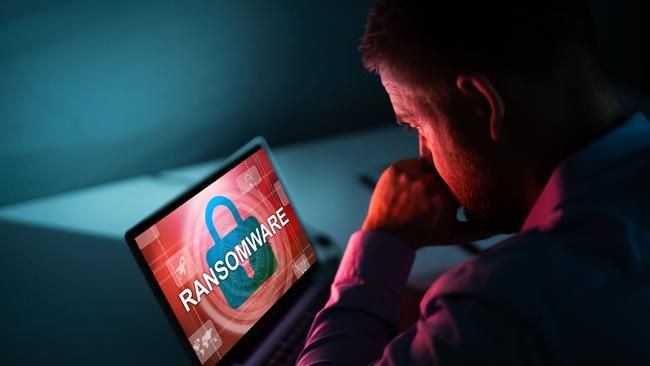Ric's new "Deadbolt" Tech goes public in a Ransomware article in "The Australian" Newspaper
The following article appeared in the weekend addition (July 10th 2021) of The Australian Newspaper in print and online and can be found here if you have a subscription. Else I have reproduced the article for those without a subscription. The section that is highlighted refers to the Deadbolt technology.
‘Vaccine’ hunt to shield data from hackers

Ransomware has become a huge threat to businesses. Picture: Istock
CHRIS GRIFFITH
TECHNOLOGY REPORTER

12:30AM JULY 10, 2021
Just as humanity has grappled with creating a vaccine for coronavirus, some technologists say we desperately need a ‘vaccine’ for ransomware....
...
Ransomware is now running rampant. Hackers trick users into downloading malicious computer code that encrypts files on every device in a computer network, making code unreadable and computer systems inoperable.
...
Hackers demand thousands, sometimes millions of dollars, for a special key they can give you which unravels the encrypted code and your data.
...
In 2021 hackers are impregnating ransomware on an industrial scale and are making millions.
Colonial Pipeline in the US, JBS, the world’s biggest meat works, and this week network software provider Kaseya have been victims of recent ransomware attacks. In Kaseya’s case, hackers demanded a ransom of $US70m.
No end is in sight, as western law enforcement agencies can’t get co-operation from the Russian Government to hunt down these cyber criminals who operate from eastern Europe. Hackers operate with impunity.
System managers are repeatedly told to implement tighter security, and maintain comprehensive backups of systems and data offline, away from the reach of ransomware.
Some installations are devising software systems that turn networks into fortresses and make it harder for ransomware to infiltrate in the first place, a so-called ransomware ‘vaccine’.
Noushin Shabab, Senior Security Researcher for Kaspersky’s Global Research and Analysis Team, said a technique widely used in ATMs called ‘executable whitelisting’ could be more widely implemented.
"Only whitelisted executable can run on the system and any new (application) including a ransomware doesn‘t get a chance to run and infect the system.
...
"Some security products such as KIS have a feature which allows the user to set up policies and implement executable whitelisting." Anti-ransomware detection logic is another option.
...
However, he said there were circumstances where some techniques can add complexity and impact the performance of systems.
...
Ric Richardson, the inventor of try and buy software and activation software in the 1990s, said he was experimenting now with a more robust operating system that eliminates ransomware before it encrypts a computer drive.
The ‘kernel’ of a computer operating system tests every program before it is run. He said this was a different approach to ‘whitelisting’ computer applications. With whitelisting "there‘s an opportunity for hackers to get in there and interfere."
...
Mr Richardson soon will test his modifications on a Linux computer system he is making available to the public. "Intrusion testers" will be able to obtain usernames and passwords so they can try to hack his system from across the internet.
...
Associate Dean for Computing and Security in the School of Science at Edith Cowan University, Paul Haskell-Dowland, said there "a whole range of approaches" that could be used to mitigate ransomware.
...
"Whitelisting" or pre-approving applications that run on computer systems could work in small environments, but were unwieldy for larger companies and systems.
...
He said military grade operating systems that tightly control the applications that run on them could be adopted more broadly, as with the US ‘Red Book’ standard.
...
"The problem is that when you bring in those kinds of levels of controls, you prevent people from doing what they want to do. So it certainly wouldn‘t be a global implementation that you would roll it out, for example, to all Windows users.
...
"We’re certainly not going to give up," Professor Haskell-Dowland said. "We always talk about the cat and mouse game. It‘s one upmanship. We’ll come up with some new protection mechanisms and new safeguards and new approaches to operating systems. This stuff is happening all the time.
...
"If we can stay a little bit ahead of them, we can try and protect the most critical aspects."
...

TECHNOLOGY REPORTER
Chris is one of Australia's most experienced technology reporters, with an involvement in the computer industry spanning almost 50 years. He learned to program in the late 1960s, studied computer science in the... Read more



